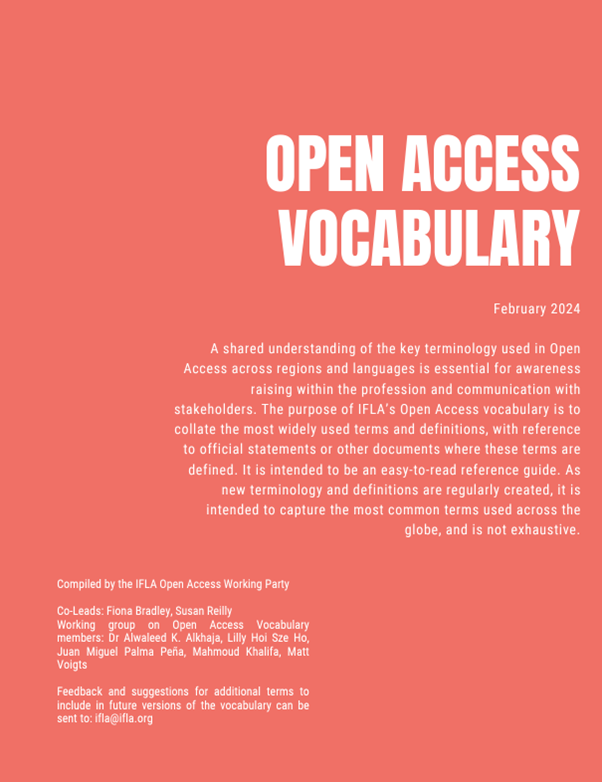A common goal, a common language: IFLA Open Access vocabularies publication
29 апреля 2024
 The spread of Open Access arguably represents one of the most far-reaching successes of the library and research fields over the last quarter century.
The spread of Open Access arguably represents one of the most far-reaching successes of the library and research fields over the last quarter century.
By providing an alternative to proprietary business models of scholarly publishing, it has made it possible to make the most of the technological opportunities that the internet has brought by providing much wider access to research. This helps reverse the vicious circle whereby less wealthy institutions can provide less access, and so in turn are less able to support research, meaning that they can attract fewer resources and partnerships.
However, despite the success achieved, there is a long way to go. Still, far too few articles, books and other outputs are published openly. Too often open access doesn’t come with any sort of guarantee that readers can subsequently use the content accessed. And some open access business models risk replicating old inequities by creating barriers to publishing.
All this means that it is essential, across the library field, to talk, to work, and as far as possible to act together to make a reality of open access – and open science and scholarship – through our advocacy and our practice.
To help in this, IFLA’s Open Science and Scholarship Advisory Committee is happy to share its Open Access vocabulary, which brings together the most widely used terms and definitions. This is intended to act as a reference guide, providing a route for more librarians into advancing openness.
Find out more on our repository!